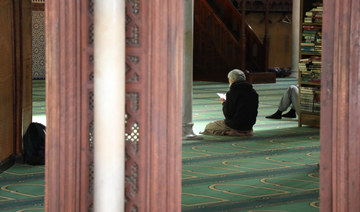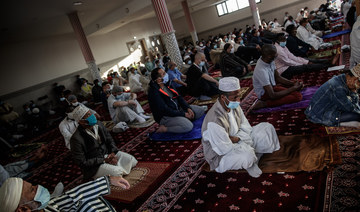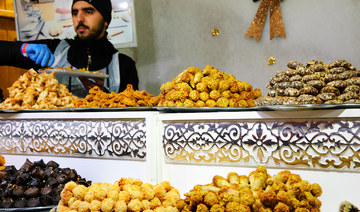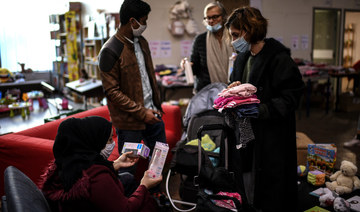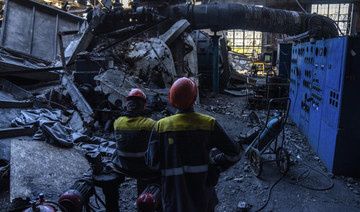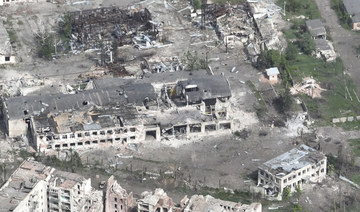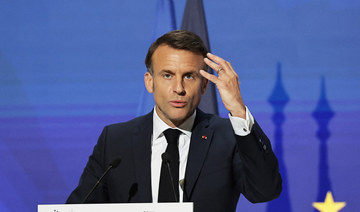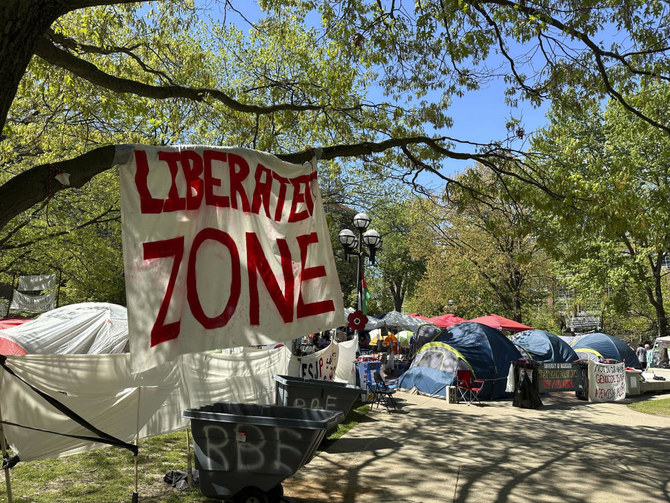PARIS: On March 11, 2012, Latifa ibn Ziaten, a mother similar to many others living in the Toulouse region of southwest France, saw her life turned upside down.
Her son Imad, 28, a parachutist in the French army, was killed by a 24-year-old terrorist, Mohammed Merah, nicknamed “the scooter killer.”
The two young men did not know each other. They agreed to meet after Merah posted an advertisement on the internet to sell a scooter. The ad, however, was a trap: Merah knew that Imad was a soldier. When the latter arrived at the meeting place, Merah killed him in cold blood with a firearm.
His mother was devastated. She was deeply affected by a terrorist who stole her son, her pride, from her. Although overwhelmed with pain, she refused to throw in the towel and managed to overcome the tragedy to take positive action. She decided to act against radicalization.
What helped her not to surrender to grief and hatred was first of all the unconditional love for her son. She told Arab News that she had five children, “but with Imad’s death, I lost half of me.”
The prosecutor of Toulouse later told her that her son died standing, refusing Merah’s orders to grovel. She decided to search for the killer to know why he had killed her son. Subsequently, Merah claimed six other lives, before being shot by special forces.
Ibn Ziaten went to the district where Merah grew up, in a suburb of Toulouse, in order to meet young people there. She was flabbergasted by the pride they took in the crimes of Merah, who they considered “the hero who brought France to its knees.”
Their shocking comments made her realize the seriousness of the situation. So, in a message to the young people, she said: “You are the cause of my suffering, but I want to extend a hand. I want to help you.”
However, her words were only received with sarcasm. One of the youngsters said: “We’ve already heard this many times and we don’t believe in it anymore.”
She pointed out that Islam was not representative of what Merah did, and that France was a country of freedom and rights, not a country of hatred.

The youth replied and said: “Look at where we live, madam, look around you. We are like monkeys, like caged creatures, and we try to take revenge on society.”
Ibn Ziaten added: “But you can’t blame this on society. If you need help, you should protest or write. You should call for help, but not kill.”
In answer, the youth said: “Nobody listens to us, the journalists come and film us as if we were monkeys. We are lost, madam.”
Ibn Ziaten vowed not to give up and to do everything in her power to prevent these young people from falling into violence and to avoid a new Merah emerging from among them and causing more deaths.
Since then, she has devoted her energy to carrying a message of tolerance, brotherhood, and courage, hoping to neutralize the hate speech distilled among young people to try and turn them against society and into killing machines.
She noted that the same language of despair and feelings of abandonment could be found in all the French or European suburbs that she visited, in prisons, and even in schools. There was “a huge amount of work to be done with young people from the suburbs, in France but also in Europe,” she said.
Her observation was evident in the findings of the Arab News en Francais-YouGov survey, which show that while people of Arab origin in France had largely adapted to the French way of life, the young suffer from a lack of educational means, in an age when education is the most important way to progress in life.
The Imad Association for Youth and Peace founded by Ibn Ziaten, allowed her to contribute to the task, and to remain standing, just like her son, while keeping his memory alive.
“I didn’t know anything about how associations work. I learned step by step. When I look back at the number of people I’ve helped, I tell myself that this is what Imad would have wanted me to do,” she said.
Despite not having received any formal training about how to fight against radicalization, she has been guided by her motherly instinct and speaks to her audience in her own way, using simple language.
Ibn Ziaten said: “When I talk to them (young people) about love, some of them start to cry. This also happens when I speak of the presence of parents. Many are left to fend for themselves. They rarely see their parents, who don’t talk to them.”
She pointed out that many young people shunned education due to a lack of means but most said they had religious faith. “But when I ask them if they know what religion is, they say that they don’t.”

She said schools, families, and social circles needed to provide joint support for youth.
When she meets terrorists jailed for attacks and killings, she said: “I see in front of me a person who has committed an act and who is paying in prison for what they have done, and I wish for them to make it out.”
Ibn Ziaten admits to still feeling resentment toward Merah’s mother, who she met during the trial of her second son Abdelkader, who was convicted of complicity in his brother’s crimes.
“I cannot forgive her. She let her four children down. She abandoned them to drugs and violence, and when I asked her if she was aware of the mess she was responsible for, she replied: ‘It’s not just your son who died; mine died too.’”




